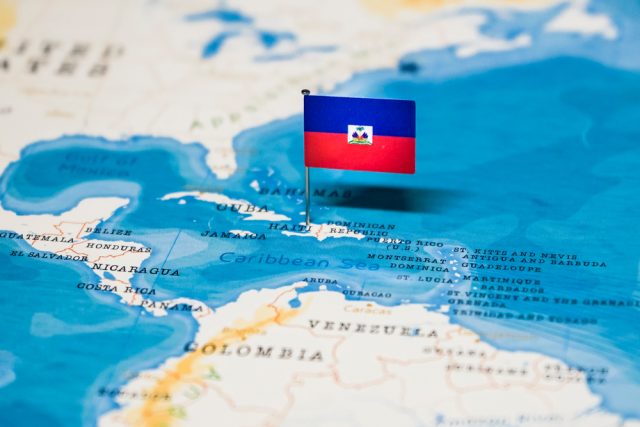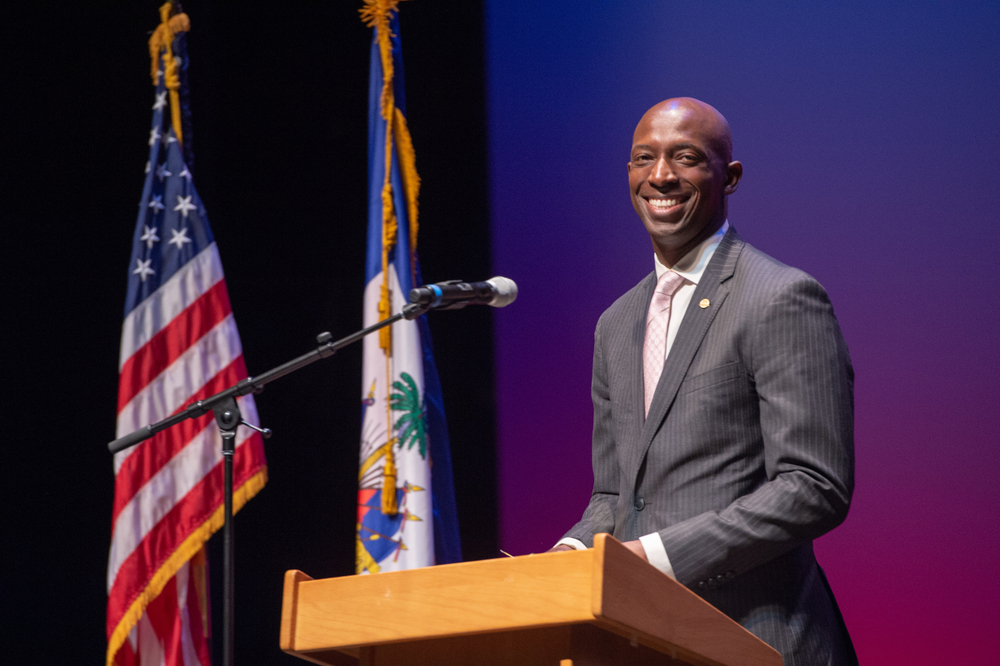
The crisis of the Caribbean state and the geopolitical implications. What is happening in Haiti?
If, as seen in previous articles, South America represents one of the hottest geopolitical scenarios due to the frequent political instabilities and the progressive extremisms that propose to lead the countries, North America seems to tend to be calmer, even in the Caribbean scenario.
There is currently a significant political and institutional crisis happening in Haiti that has not received much media attention. However, it is causing concerns at the international level. Haiti is a French-speaking country situated on the western coast of the island of Hispaniola, which it shares almost equally with the Dominican Republic.
The island, and particularly the Haitian Republic, has been one of the most difficult areas in the world. In the span of two decades, Haiti has faced two devastating hurricanes, the second most destructive earthquake in human history in 2010, and another earthquake measuring above 7 on the Richter scale. This situation has completely crippled the country, resulting in approximately 235,000 deaths caused by seismic or atmospheric events.
The situation in the country is rapidly worsening. Currently, 27% of the population is experiencing a food crisis, with more than 2 million people facing a real emergency and risking death from starvation. Starvation has also weakened their health resistance, leading to various famines and epidemics like cholera. The periods of relative tranquility have only been possible due to a massive American military presence in the country. However, the UN mission coordinated by Brazil is currently struggling to ensure a better situation.

The political situation in Haiti is currently extremely volatile. On July 7th, 2021, the President of the Republic, Jovenel Moïse, was assassinated in the presidential residence. Prior to his death, he had named Ariel Henry as his successor. However, due to the assassination, Henry was not able to immediately take the oath of office. In the aftermath, Haitian authorities began to investigate Henry, who refused to cooperate with their inquiries. The situation in Haiti remains tense and uncertain.
The commando that went to assassinate Moïse was made up of around thirty people mainly of Colombian and US citizenship of Haitian origin, suggesting a combined operation with the drug cartels, fought hard by the President during his mandate.
Despite being formally independent, Henry comes from some center-left parties and has repeatedly been asked for concrete support from American President Joe Biden. This is nothing new, given that the country depends significantly on the United States. And it is precisely the United States that has begun to abandon the country with its own diplomatic personnel evacuated as well as those of the European Union and Germany.
In fact, last February 29th, a mass escape took place which led to the reconstitution of criminal gangs who – despite once being rivals – united to overthrow Henry’s government and take control of the republic.
Henry initially relented, resigning after gangs occupied and controlled the state capital, Port-au-Prince. An occupation that had already been taking place since last year but which saw an exponential intensification in the first days of March. The police are unable to return fire, as the 10,000 available officers are insufficient and many of the 1,500 policemen who recently resigned are even joining the criminals.
The figure who is currently dominating the scene in the “rebel” camp is Jimmy Chérizier known as “Barbecue”, who is head of the G9 (union of the 9 main gangs on the territory) and has already been noted for having caused an energy crisis by seizing 25,000 tons of diesel. The protests began after Henry promised to hold an early election on March 7 only to cancel it; Henry recently went to Kenya to ask the UN for an armed contingent.
The situation is becoming critical: Henry is not a welcome guest in the Dominican Republic, which is why he is now essentially a “refugee” in Puerto Rico, on US soil. An important role is now being played by Mohamed Irfaan Ali who – despite his name – is President of Guyana and Caricom, the Caribbean Community. It will also be up to him to guarantee a peaceful transition and moderate the various positions and above all to guarantee the support of the United States in resolving the crisis, also taking advantage of the fact that his party is left-wing and could therefore count on support from both the American Democrats and the South American lefts, which are direct extensions of the BRICS. The “cold war” also affects Haiti.
The United States, according to the latest news, is participating in the Kenyan-led security mission with a contribution of 300 million dollars, with African troops already in the pre-deployment phase to quell the “Barbecue”-led uprisings. The situation obviously requires particular attention also from a geopolitical point of view.
In fact, the Dominican Republic, which had already welcomed thousands of migrants from Haiti in the past, this time closed the border and the only alternative voice in aid of Haiti is that of the President of El Salvador Nayib Bukele, who recalled his own repression of gangs in the country as a concrete example of the possibility of effectively countering criminal rebels.
The deaths at the hands of bandits, between 2023 and 2024, are around over 5,000, with 700 injured and 3,000 kidnapped which literally makes Haiti unlivable, producing an escape of people who, blocked by the Dominicans, have the only option to take refuge in the United States, which however is in the midst of an election campaign.
In the background appears a figure, requested by many but difficult to get approved: it seems that one of the few who can restore order is Jean-Bertrand Aristide. Aristide was in fact President of Haiti on several occasions between 1991 and 2004, ousted by a couple of coups d’état and spaced out by the limit of two consecutive terms.
For many, Aristide is the only one capable of ensuring the well-being of the country as he is identified as a sort of national hero having overthrown the previous regime of the Duvaliers (François and Jean-Claude, father and son) which had lasted uninterruptedly since 1957 and fell in 1986 also under the thrust of Aristide’s preaching.
The character, however, is quite unpopular among various social groups, mainly among the Catholic community of Haiti and among the more conservatives: if in fact there is currently only the police to respond to criminals it is because Aristide, in reaction to the military coup that ousted him, he decided to disband the army upon his return to power. Furthermore, the Catholic Church was involved in the WikiLeaks scandals having repeatedly opposed the figure of Aristide after having somehow tried to advise her in the most turbulent moments of his government.
In any case, the fact remains that only his governments have had a minimum of stability, or at least they have not had as their only outcome that of popular revolts and early resignations, indeed it has often been interest groups that have removed him.
However, it is very likely that the Haitian issue will become one of the first topics on the agenda of the future President of the United States: the American role in crisis management and the economic and social, as well as migratory, repercussions are in fact very important points for evaluating the actions of a President.



 Subscribe
Subscribe